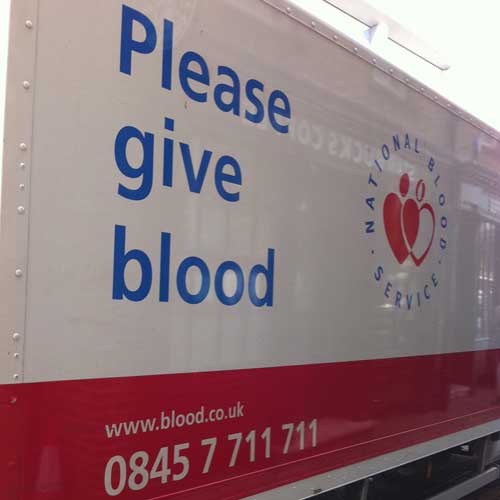You can find 4 different blood groups in your body, these are A, O, AB and B. These blood groups are most of the time determined by the genes which were inherited from parents. They can also be influenced, sometimes, by our ancestors as well.
It’s important to note that the group can be RhD negative or positive, so this basically shows the fact that a blood group can pertain to one of the eight total blood types.
What is Blood?
Our body has no less than 6 litres of blood. Blood basically includes blood cells, platelets and white blood cells which are all combined in order to form a liquid which is called plasma. This plasma contains around 90% water, although at the same time it also includes hormones, nutrients, proteins as well as waste products. It’s also important to know that our blood is comprised out of 40% blood cells and around 60% plasma.
The blood cell types have each a role to play, a specific one based on their type:
- red blood cells are suitable for carrying oxygen and distributing it within the body, but at the same time they also remove the waste products and carbon dioxide. They are the ones which provide the red colour to our blood.
- white blood cells are helping our body to fight infections and they also make up for a large portion of the natural defence mechanism of our body.
- Platelets are the ones that make the blood thicken when our body starts bleeding
Antigens and antibodies
The body group that you currently have can be identified based on the antibodies as well as antigens in your blood. The antibodies help your body fight against invaders such as germs and it will improve the natural defense of your organism. Antigens on the other hand are basically protein molecules that you can find at the surface of your red blood cells.
It’s important to know that the antibodies are basically plasma-located proteins and they can easily find any foreign substances. In such a situation the body will be alerted and the immune system will proceed with the destruction of this intruder.
The ABO system
The ABO system recognizes 4 different blood types:
- blood group A is the group that has A antigens within the red blood cells and it also hosts the anti-B antibodies within plasma
- blood group B includes mostly B antigens while also having anti-A antibodies within plasma
- blood group O is a group that has no antigens at all, but it does have both the anti-A as well as the anti-B antibodies found within plasma
- blood group AB comes with no antibodies, but at the same time it also has A as well as B antigens
The interesting thing about the UK population is that around 48% have the blood group O which makes it the most common one.
If you receive blood from the wrong group, you will be endangering your life. If a person that has group A blood will receive group B blood, then the antibodies from the donated blood will attack the group A cells which leads to severe reactions. Those persons that have O red blood cells don’t have this problem however as they can donate to any other group since their blood doesn’t have B or A antigens.
The Rh system
Red blood cells often have another antigen, a protein called the RhD antigen. If this is in place, your blood group is RhD positive. If you don’t have it, your blood group is RhD negative. Therefore you can be in one of eight blood groups:
- A RhD positive (A+)
- A RhD negative (A-)
- B RhD positive (B+)
- B RhD negative (B-)
- O RhD positive (O+)
- O RhD negative (O-)
- AB RhD positive (AB+)
- AB RhD negative (AB-)
In the UK, 85% of the population is RhD positive (the most common type being O+ which covers 36% of the population). Generally, O RhD negative blood (O-) can be administered to anybody and it is regularly used in medical emergencies if the patient’s blood type is not known. As it doesn’t possess any A, B or RhD antigens on the surface of the blood cells, it’s safe for most users and is compatible with every other ABO and RhD blood group.
Taking a Home Blood Group Test
Many people in the UK are unaware as to what their blood group is. Your GP will not test our blood group unless their is a medical need to do so. Sometimes the only way a person can find out which blood group they belong to is by giving blood. The blood group they belong to is then recorded on their donor card.
A home blood group test also exists for those that want to find out what blood type they belong to. Using just a small finger prick of blood, the test can be carried out quickly and comfortably in private with results in minutes.
Photo Credit: “Please give blood” (CC BY-SA 2.0) by HowardLake
Zoom Health is a leading UK supplier of Home Health Tests and Earplugs
This post was originally published in November 2017 and has been regularly updated since.





